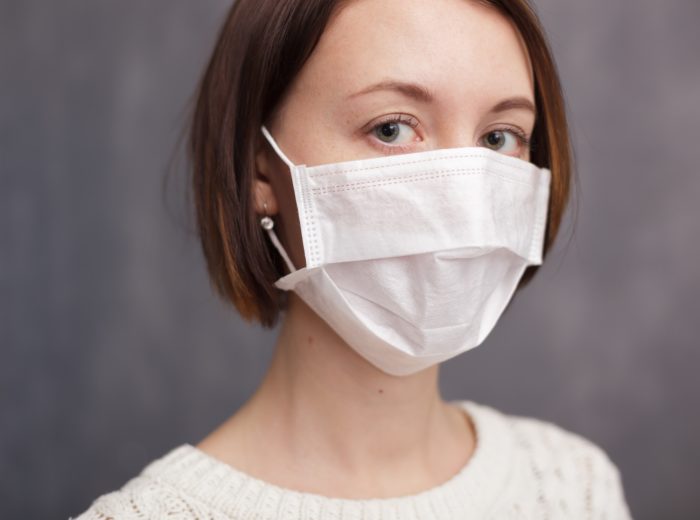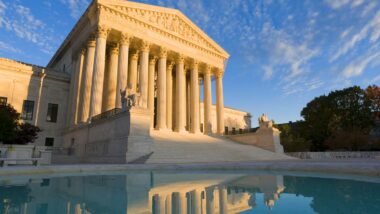
The New Jersey Attorney General recently told employers in the state that they cannot fire workers based on perceived coronavirus symptoms.
New Jersey Attorney General Gurbir S. Grewal’s office released an official guidance on the issue on March 19. The office notes that employers are responsible for preserving the civil rights of their workers under New Jersey’s Law Against Discrimination (LAD), despite the stress and panic associated with a global pandemic.
Specifically, the office notes that employers cannot fire employees simply because they have shown coronavirus symptoms. For example, if an employee coughs on the job or has a disability (such as MS or another autoimmune condition) which is affected by COVID-19, employers are not allowed to fire them due to these reasons.
Additionally, Attorney General Grewal notes that the coronavirus outbreak is not justification for “racism, xenophobia or hate” against East Asian workers. Although the virus originated in China, this does not mean that individuals of East Asian descent are to blame for the coronavirus.
Were you discriminated against for your ethnicity or health status amidst the coronavirus outbreak? Get legal help by clicking here.
If workers are being targeted by their peers or supervisors for their ethnicity amidst the global pandemic, employers are responsible for stopping this harassment.
“If you have East Asian heritage and a co-worker repeatedly harasses you by claiming that Asian people caused COVID-19 or calling this ‘the Chinese virus,’ your employer must take reasonable action to stop the harassment if they knew or should have known about it,” Grewal stated in the civil rights guidance.
“Discrimination and harassment in violation of New Jersey law remains illegal even if it occurs against the backdrop of a global pandemic.”

For example, a landlord or building manager cannot discriminate against East Asian individuals based on fears that these groups are to blame for COVID-19.
If someone is refused the ability to rent a property or prohibited from getting needed repairs done based only on their race, Attorney General Grewal notes that that this may violate New Jersey’s civil rights laws.
“The LAD does not prohibit a landlord from taking reasonable steps to protect the landlord or other tenants from COVID-19, but such reasonable steps would not include actions premised on stereotypes based on race or national origin,” the general warned.
Additional protections are provided by New Jersey’s LAD. For public accommodations such as medical facilities, people cannot be discriminated against due to their ethnicity or any disability.
Racial discrimination in this situation could include a hospital refusing to treat a person of East Asian descent or failure to provide English interpreter services. Discrimination against people with disabilities includes failure to provide interpreter services to deaf or hard of hearing individuals or failing to plan for “the needs of individuals with mobility impairments,” according to the guidance.
“Now, more than ever, we should recognize that we’re all in this together,” Grewal added. “Words and actions that divide us won’t make any of us safer or stronger.”
The New Jersey Attorney General’s guidance also included information about how the state’s citizens are protected under the New Jersey Family Leave Act. Under the act, individuals who have to take care of a family member or “someone who is the equivalent of family” who has COVID-19 are eligible to take up to 12 weeks of job-protected leave. This means that they cannot be fired for taking this leave.
What Are Coronavirus Symptoms?
The COVID-19 virus is part of the coronavirus family – a group of viruses which cause respiratory illnesses such as MERS and SARS.
A variety of coronavirus symptoms are common to viruses in this family, such as fever, cough, shortness of breath, and difficulties breathing. In severe cases, coronavirus symptoms can include pneumonia, acute respiratory distress system, kidney failure, sepsis, and even death.
Unfortunately, mild symptoms of COVID-19 overlap with a variety of seasonal ailments including the common cold, the seasonal flu, and season allergies. Due to concerns about the virus spreading to vulnerable populations, these symptoms are being treated as serious by health professionals and may result in testing for COVID-19.
Although these symptoms can be indicative of the virus, no symptoms make it okay for a person to be the target harassment or discrimination. Any employer or landlord found to have discriminated against a person out of fear of COVID-19 may be in violation of federal and state civil rights laws.
Join a Free Coronavirus Class Action Lawsuit Investigation
If you believe your rights were violated in a way that is directly related to the coronavirus pandemic, you may qualify to join this coronavirus class action lawsuit investigation.
ATTORNEY ADVERTISING
Top Class Actions is a Proud Member of the American Bar Association
LEGAL INFORMATION IS NOT LEGAL ADVICE
Top Class Actions Legal Statement
©2008 – 2026 Top Class Actions® LLC
Various Trademarks held by their respective owners
This website is not intended for viewing or usage by European Union citizens.














